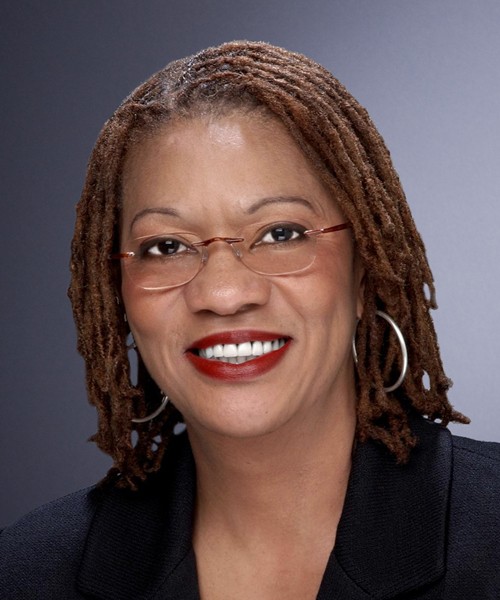Well, let’s face it: Saturday, June 14th, may go down in contemporary annals as the day that a relatively desultory election season took an uptick, with convincing evidence that the 9th District congressional race between incumbent Democrat Steve Cohen and his primary opponent Ricky Wilkins is the race to watch on the way to August 7th and the one that will drive the vote.
Whatever that turns out to mean for Cohen and Wilkins, it is good news for the other Democratic nominees on the county ballot and for those judicial candidates who are counting on a healthy Democratic turnout to pad their vote totals.
Exhibit #1 on Saturday was Wilkins’ headquarters opening in a Poplar Plaza storefront. The place was jammed, the number of influential attendees was above par, and Wilkins himself gave a standout performance — whether as best actor in the drama or best supporting actor remains to be seen.
(It should be noted that last week Cohen’s organization released the results of an internal campaign poll that gives the incumbent congressman a substantial lead of 73 to 9 percent over Wilkins, findings that correlate, more or less, with those of a Berje Yacoubian poll published in the Flyer last December, showing Cohen at 76 percent and Wilkins a 11 percent. Both polls preceded the actual start of full-scale campaigning.)
Exhibit #2, later on Saturday, was the back-to-back appearance of Wilkins and Cohen at a Shelby County Democrats’ “stump party” in Raleigh/Frayser. Another good crowd gathered in the backyard of party activist Lexie Carter‘s house for an afternoon cookout-cum-speechathon involving numerous candidates for office, but it focused on the cynosure duel of Cohen and Wilkins.
As he had earlier at his headquarters opening, Wilkins took the gloves off and did what a challenger must, took the fight to the champion. Cohen responded with a forceful and proud evocation of his congressional resumé.
In a moment, the rundown on how things went. The specifics, as it were. But first, the upshot: Ricky Wilkins, a mega-lawyer who boasts his local roots, may become the latest casualty of a congressman who has managed to beat his last several primary opponents by running up multiples of their vote — anywhere from 4-to-1 to 8-to-1. But on the evidence of Saturday, Wilkins has more rooted strength, in-depth support, and organizational and financial resources than any of Cohen’s previous challengers — certainly enough to make a fight of it, though it is still hard to find neutral observers who give Wilkins a serious chance of winning.
This is a time of upsets, however, as indicated by the downfall of GOP House Majority Leader Eric Cantor in Virginia and by the distressed predicaments of Senators Thad Cochran in Mississippi and Mitch McConnell in Kentucky.
At his headquarters opening, Wilkins forsook a previous diffidence vis-à-vis his opponent and launched several attacks against Cohen, whom he termed a “career politician.” Some of the charges were indirect, as in Wilkins’ pledge to be a congressman “who’s not going to pander to our community [or] spread around crumbs.” Nor, he said, would he “spend a lot of time doing a lot of international boondoggling travel.”
Other Wilkins barbs were more direct, as in a statement that “my opponent mentioned that his campaign was going to be dirty and vicious, and he’s following through on the promise.” Wilkins provided no examples for that accusation, though in an interview he contended that it was Cohen, not himself, who “interjects race and religion … so as to try to divide the community and marginalize his opponent.”
That was apparently apropos remarks by the Rev. Kenneth Whalum, a Cohen supporter, who, at the congressman’s own headquarters opening earlier this month, spoke of “the red herring that a Jew cannot effectively represent the black community in Memphis,” implying that Wilkins supporters were behind the “mud-slinging … particularly among African-American ministers.”
A parenthesis: Wilkins got some traction last month at a press conference where several African-American ministers announced their support for him.
Prominent among them was the Rev. Keith Norman, pastor of First Baptist Church on Broad and president of the local NAACP. Norman would later stress that he, a former classmate with Wilkins at Carver High School, was speaking only as an individual and not on behalf of his church or the NAACP. He would repeat that assertion before the Wilkins headquarters opening got started on Saturday, but then inaugurated the affair with a lengthy prayer, invoking the Almighty’s blessings upon Wilkins, while draping an arm around the candidate.
Cohen has issued his own list of more than a score of African-American ministers who support him, including such well-known names as Whalum, Dr. James Netters, and Apostle Bill Adkins.
Another line of attack from Wilkins at the headquarters opening was a claim that Cohen had the support of “special interests.” He said, “Just go to opensecrets.org. It’ll show you who his top financial contributors are. Most of them don’t live in Memphis or give a darn about Memphis. … For whom are you really working?”
A cursory search of various sites, including the Federal Election Commission’s (FEC), indicates that Cohen has, along with support from local donors, significant financial support from union and entertainment sources, as well as organizations connected, from different points of view, with the transportation industry. The list of donors seems consistent with Cohen’s political profile and committee memberships (e.g. the House Transportation Committee).
A not insignificant additional fact to be found on the FEC site is that, as of March 31st, Cohen’s reported cash on hand was $943,149, while Wilkins’ was $112,286.
Yet a third line of attack came from Wilkins at Carter’s stump party, where, in remarks preceding Cohen’s, Wilkins declared, “I won’t be a congressman who will sit on his war-chest and watch fellow Democrats lose their races. … We saw what happened in 2010. The congressman you elected at that time sat on his money and allowed Democrats to lose elections.”
That reflected a charge by Cohen’s estranged former district director Randy Wade, now a Wilkins supporter. Wade lost a race for sheriff in 2010 and subsequently complained, before leaving the congressman’s employ, of insufficient help from Cohen, who has responded that he fully supported Wade, both in joint appearances that got free media and in paid advertising, including billboards featuring the two of them together.
In his own remarks at the stump party, Cohen did not respond directly to Wilkins’ charges, though his campaign staff would respond to a Wilkins claim that he had always supported Democrats with copies of a 2006 ad, which appeared in the Flyer and elsewhere, listing Wilkins as a member of Democrats supporting then District Attorney General Bill Gibbons, a Republican, against a Democratic opponent.
Cohen emphasized instead his accomplishments on behalf of the district. Some of the recent ones cited were $15 million for the Main Street to Main Street project on the riverfront, $5 million for processing the county’s backlog of rape kits, and $3 million for summer jobs in Memphis.
Cohen attributed his prowess to his close relationship with President Barack Obama, who has endorsed his reelection bid, and with members of the Republican majority, with whom, he said, he had a “good working relationship.”
He told the crowd, “I’d appreciate your vote for this term and the term after and the term after that. I’m not asking you for one more term; I’m asking you to continue representation that’s honest and effective.”
Wilkins’ own tagline at both events Saturday was one he uses frequently: “If you liked Steve Cohen, you’ll love Ricky Wilkins.”
• More problems for beleaguered Juvenile Court clerk candidate Henri Brooks. On Friday she was charged with misdemeanor assault after an altercation with a driver over a parking lot space at Methodist Hospital Central, where Brooks was working. Witnesses say Brooks uttered racial slurs and attacked the woman who drove the other car.
And on Monday, acting on an apparent discovery by a Channel 24 reporter that Brooks does not live at the Midtown address she has claimed, but at a Cordova address outside her district, the County Commission voted to consider a possible ouster of her from the commission at a special called meeting on June 26th.
One note running counter to a mounting chorus of criticism came Tuesday from veteran Democratic operative David Upton, who contended that he had hand-delivered information to Brooks at her claimed Midtown address some two years ago. Meanwhile, Methodist Hospital announced Tuesday that Brooks had “resigned.”

 Greg Cravens
Greg Cravens 
 Jackson Baker
Jackson Baker  Greg Cravens
Greg Cravens 